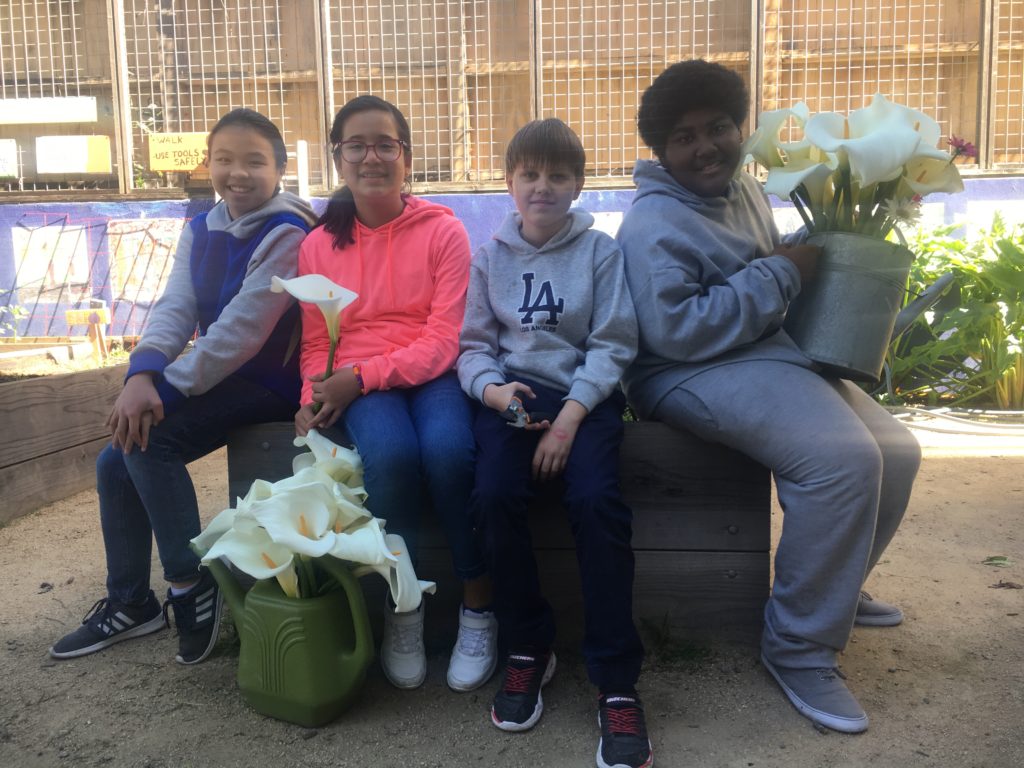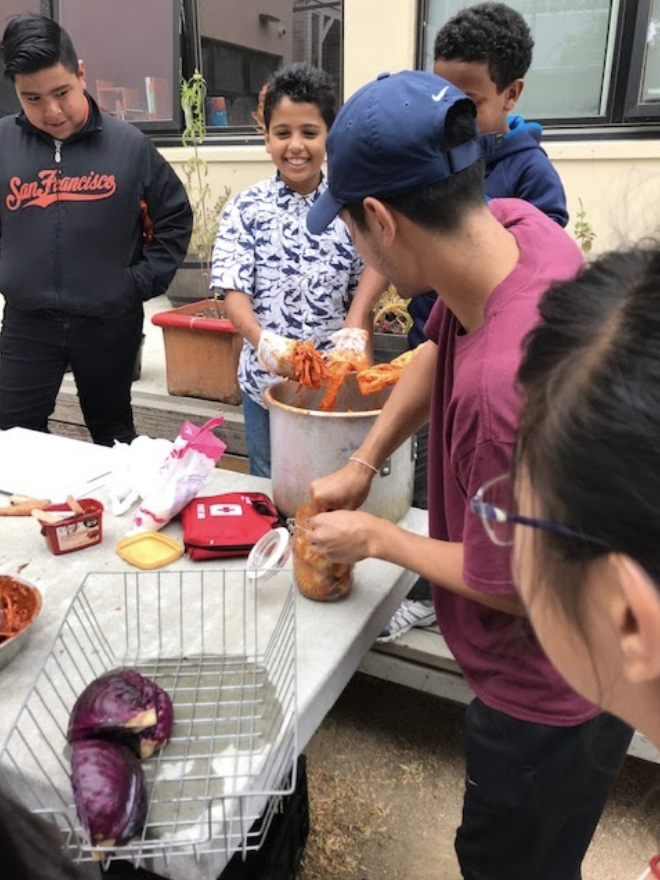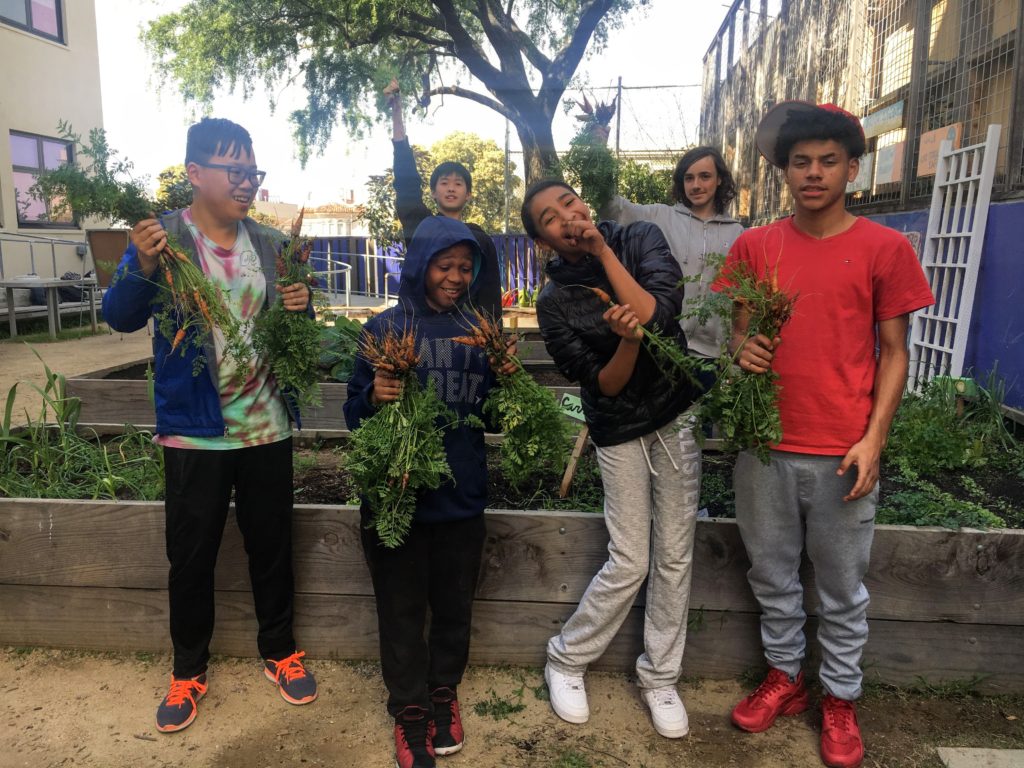Beyond the Roots: STEAM’s Gardening Classes
March 11, 2020

Last week, I had the chance to interview Rebekah Foster who oversees TEL HI’s STEAM programs. For background, STEAM stands for Science, Technology, Engineering, Art and Math and is a holistic educational approach to teaching students. The programs’ goals are to inspire students to think critically, be curious, and solve problems in a uniquely creative way, which TEL HI believes is critical in solving future generations’ greatest problems like climate change. The unique program is incorporated into the curriculum at Francisco Middle School and one of its components is a gardening class.
The gardening class’s inception occurred last spring when Rebekah and Lorraine Orlandi, TEL HI’s Beacon Director, sought out a way to intertwine STEAM more into its curriculum at the nearby middle school. They noticed that although the school’s garden was available, it wasn’t being used. The pair saw the space as an opportunity to incorporate the garden into its STEAM program and eventually thought of piloting a gardening class. They not only saw it as an opportunity to expand STEAM but also as a way to connect students to nature through a hands-on, interactive approach and more importantly, to help students understand the importance of environmental sustainability.
So, Rebekah and the STEAM team (Jamon Tyus, Anna Wolde-Yohannes, Jimmy Le, and Stephen Rumph, Luke Galvin-Quinn), led by Lorraine and the Beacon team, began hosting gardening classes there four times a week. Their students come from very diverse backgrounds and include those who recently immigrated to the U.S., enrolled in AVID, a class that provides students with extra academic support, and those who are enduring trauma. For the students who recently immigrated, the program provides a space where they can comfortably develop their English skills and for those who recently faced trauma, it serves as a calming space for them to healthily cope and develop their emotional and cognitive-behavioral skills. More broadly, the class teaches various topics and skills like climate change, food systems, problem-solving skills, and much more.

One example that illustrates how invaluable this program has become is Rebekah and Jimmy’s course on how to ferment kimchi. Despite the students’ personal adversities and different cultural backgrounds, they were incredibly excited and engaged throughout the learning process as Rebekah noted they felt great satisfaction in making their own food, regardless of the recipe’s cultural roots. Growing their own food also helped to boost their confidence and sense of independence. She also saw how one student of Russian descent compared kimchi to borscht—showing the power that food has in connecting students of different cultural backgrounds.
So, it turned out the gardening class transcended the STEAM and Beacon team’s expectations as students learned much more beyond the core subjects of STEAM. More profoundly, the students developed an appreciation for the effort and patience it takes to produce food, the serenity that the outdoors can bring, and the commonalities that food has across cultures. Above all, however, the garden class became a great representation of the power of STEAM. Simply put, STEAM can foster so much more than purely academic knowledge– it can foster a deeper, more profound set of skills and perspectives that go far beyond the classroom.

We hope that STEAM gets implemented at schools everywhere and we invite you to join our movement. Thank you to TEL HI’s staff, especially the Beacon team, for making this class happen and to learn more about our various STEAM programs, reach out to Rebekah at rfoster@telhi.org or visit https://www.telhi.org/steam/.
Article by John Carandang







